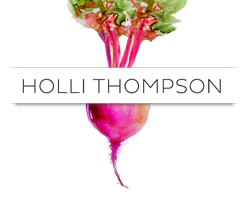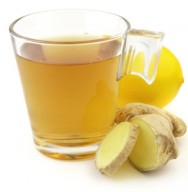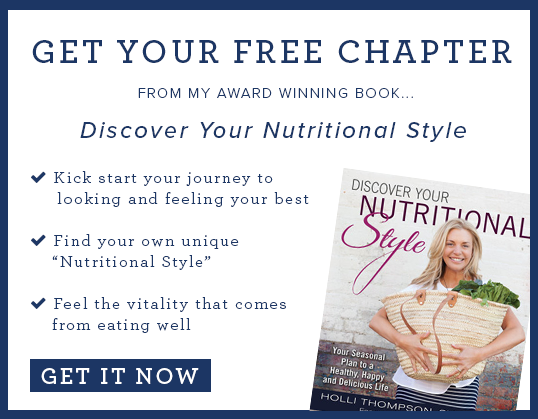Stanford’s Organic vs. Conventional Foods Study
Headlines around the world blasted the news earlier this month,
“Stanford Scientists Cast Doubt on Advantages of Organic Meat and Produce”
Really? How can this be so?
Organic farmers reacted, and chemical companies rejoiced.
Was it true?
The study, it seems, was full of holes. There was a comparable study, conducted by Kirsten Brandt of Newcastle University, who published a similar review of relevant studies in 2011 and concluded that organic was more nutritious than conventional. Kirsten even identified a spelling error that swayed one of Stanford’s results.
It seems that Stanford found no difference in total flavanals between organic and conventionally grown food, but her results showed that organic foods carried far more of the heart healthy nutrient. It seems the team had calculated flavonols, spelled with an “o” not an “a”, so it was actually a different nutrient altogether.
That mistake was just the beginning. The study downplayed the higher levels of omega-3’s, as well as lower levels of pesticide residues and antibiotic-resistant bacteria found in organic compared to conventional foods. Studies show that higher levels of pesticides can be harmful to our bodies, especially for small children and pregnant women.
Since the study focused on the nutrient levels of foods, and not the toxic pesticide load that our bodies absorb, the study and its resulting headlines were only offering up part of the information, yet companies, farmers, and individuals all over the world reacted as if this were new and reliable conclusion.
Brandt also noted this on the nutrients they studied and gave results for , “The choices they made don’t seem to make sense — they seemed to include ones (nutrients) where the difference was smallest to begin with,” said Brandt. “I’d like to know why they chose these and not others that were just as well-described in the same papers they included.” Brandt’s study included nutrients of value, where the difference between organic and conventional was significant, and created a case for buying organics.
Looking further than the fact that nutrients were seemingly omitted, and others that had a minimal change were included, and that the findings were summarized in an extreme way to give them the headlines they wanted, those who looked further found suspicions that Stanford downplayed the benefits of organic foods because they had received large donations from conventional agriculture giant Cargill.
Stanford denied allegations or associations to the Huffington Post, and said that the Cargill money had gone to a department not directly related to the study, according to a Stanford spokesperson.
Oh, that’s ok, then.
My guess is you’ll be eating organics this fall. You’ll continue to shop for the freshest, local varieties of seasonal produce and you’ll continue to reduce your personal toxic load. You’ll avoid the dirty dozen especially, and allow yourself the clean fifteen if you need to.
That’s how we roll.
What do you think about this study? What have your friends said about it? Did it influence your shopping habits? Are you ready to ditch the organics?
Share with us here.
Keep standing up for your health.
Holli xo





Ilene Fallot / 9.18.2012
We must find a way to make ourselves heard! It seems impossible to think of fighting Monsanto, DuPont , and other giants who are creating our toxic environment but we must find ways! This article is a perfect example of the control these huge industries maintain over the food we eat.
Look what MADD accomplished….all our drunk driving laws are a direct result of those concerned women. I hope one day soon all the women who care about their children and our planet can begin to unite so we can make a loud enough noise to be heard!
Keep up the GREAT work Holi
Holli / 9.18.2012
People have choices, and education is the key. If you feel strongly that organic produce and foods are important for our health, share information, and spread the word to friends and family.
For up to date information on the value of eating organic food, and a list of the “Clean 15” and the “Dirty Dozen”, visit the Environmental Working Group, at http://www.ewg.org.
Much love,
Holli
Tara / 9.18.2012
I read about the study in the newspaper and listened to a discussion on NPR about it. Regardless of the findings, I will still be choosing organic. I think the pesticide issue (ignored in the study) is huge! Who cares if commercially grown produce is below federally- mandated pesticide limits? Who sets these limits? Government agencies. Who influences government? Lobbyists from corporate food giants. It’s akin to the EPA trying to balance corporate interests with public interests when they set limits for toxic emissions. Any amount of toxin, no matter how small, is not good for the body.
Holli / 9.18.2012
Amen, Tara!
LiZa / 9.18.2012
There is so much talk today as in the past of “fighting” for our cause. I remember when we use to boy-cot the bad-guys, Dow,Monsanto,and alike and they changed their names so we would keep buying their products and not know it.
Times have changed and we NEED to be more informed and help educate others to bring about true change and yes, we still NEED TO BOY-COT. Our dollars are what matter to the corporate giants not our health. Or should I say our good health is not something they want because then we don’t need their prescriptions. (All the same root companies)
Pesticides and toxins do not belong in our environment in any form with or without nutrients in them.
Thanks, Holli, for all that you do to keep us educated and on the organic track.
Holli / 9.18.2012
Hey Liz,
Thanks for adding to the party, today! Rally round this issue, and change happens.
Holli
xo
Debbie / 9.19.2012
Whether or not there is a higher nutritional value in organics ( and there are other studies that say ther is)is besides the point .There was a significant difference in the amount of pesticides..30% difference. To me that IS enough of a nutritional difference !,
Debbie Orol RN,CHHC
Holli / 9.19.2012
Thanks, Debbie. I agree, and let’s keep sharing that word.
H.
Sally-Ann / 9.19.2012
Thanks so much for this report Holli.
I for one believed that the Stanford report was full of holes…. i had a feeling they probably had their facts skewed, biased, or wrong.
However, they missed the point by a longshot as to why I think most people eat Organic food.
I choose Organic because I do not want any nasty chemicals and toxins in my body.
I can also taste the difference… Organics have a superior flavour by far.
Eating Organics also gives me peace of mind in knowing that I am giving myself and my family food as it was intended to be by nature.
Organic farming is also kinder to the environment; its kinder to bees (who need every bit of help they can get if we are going to continue to eat any sort of produce at all); and its kinder and involves more humane practises for meat producing animals.
AND… buying Organic food makes me happy.
It does not matter to me what silly reports come out against Organics…. I for one will always make the better choice when I can.
Tina Brannon / 9.25.2012
hi holly!
it’s bogus .. it’s called the politics of money and bias reporting by those with an agenda. it makes me nuts! it’s so important for consumers to get to the bottom of who is funding the study. nothing new .. it goes on and on in the world of big pharm who is the root of all evil in my humble opinion after 30 years in medicine. it twisted and we need more people like you and i educating the public. love your story holly…totally inspiring and you are so on the right path to make a significant difference in the world of health vs fashion.
i am a nurse, with a bs in bio, case management, cancer coach .. 2 time cancer survivor .. was given 3 months to live at age 14 while i was focused on a pro tennis career .. stopped in my tennis shoes only to turn the prognosis of 3 months into 33 years .. then .. healthy as a horse .. breast cancer stage III caused by the radiation to a grapefruit size mass in my chest .. it was infuriating the “treatment” caused the secondary cancer. oh course it did … chemo & rad tx are carcinogenic .. don’t get me started! 🙂 anyways .. i kicked ass again after integrating acupuncture, eastern medicine, nutrition, IV Vit C, etc.. so .. here to say i get you, believe in you and we have to continue to advocate, educate and bust bias reporting & bogus research all for the all mighty dollar … keep up the amazing work … if you send me your email, i would love to send you a brief of current work called the Survivor Gene … we must turn it on with our environment .. you will love it … blessings & much gratitude for your work .. tina 🙂